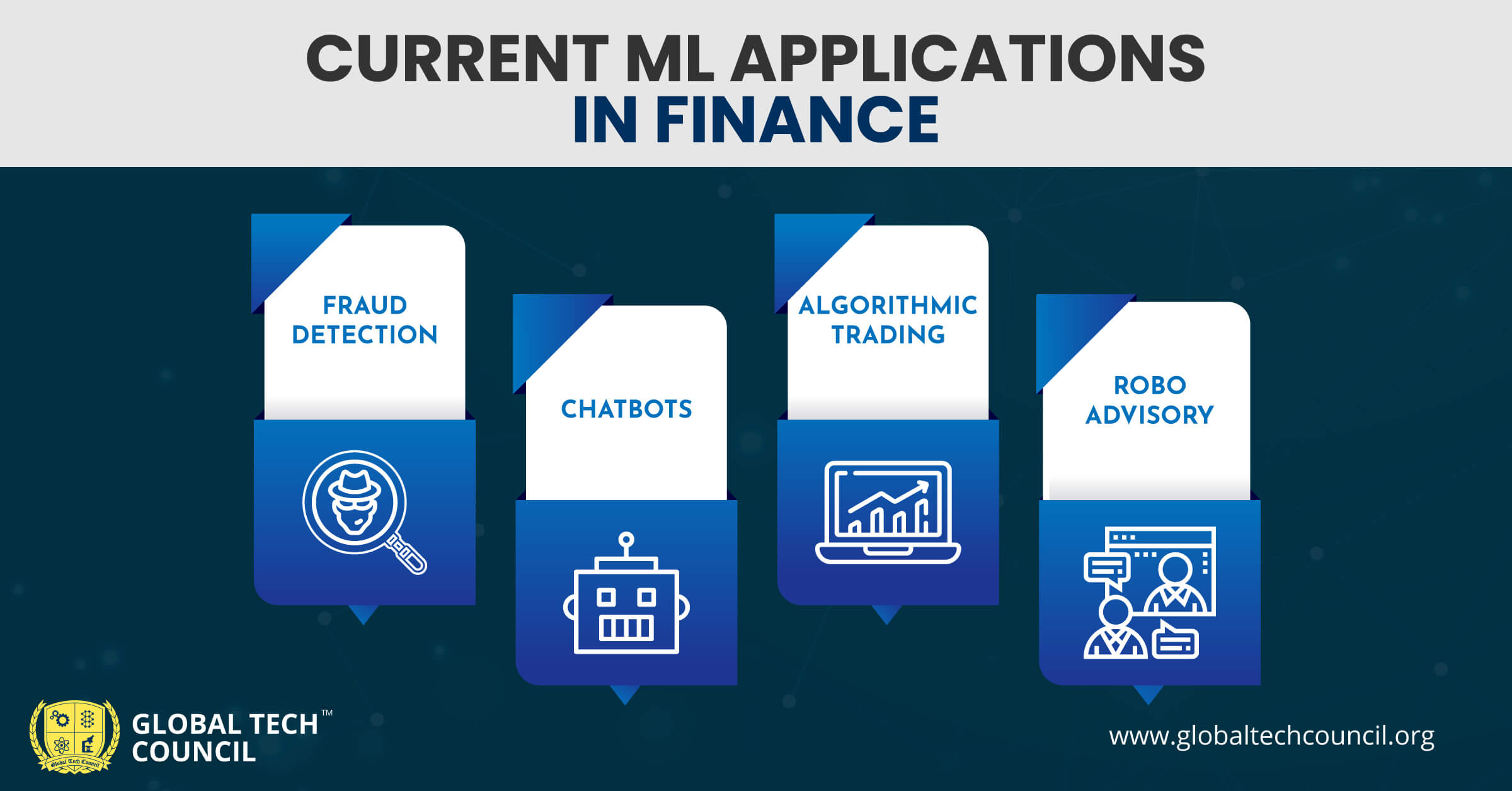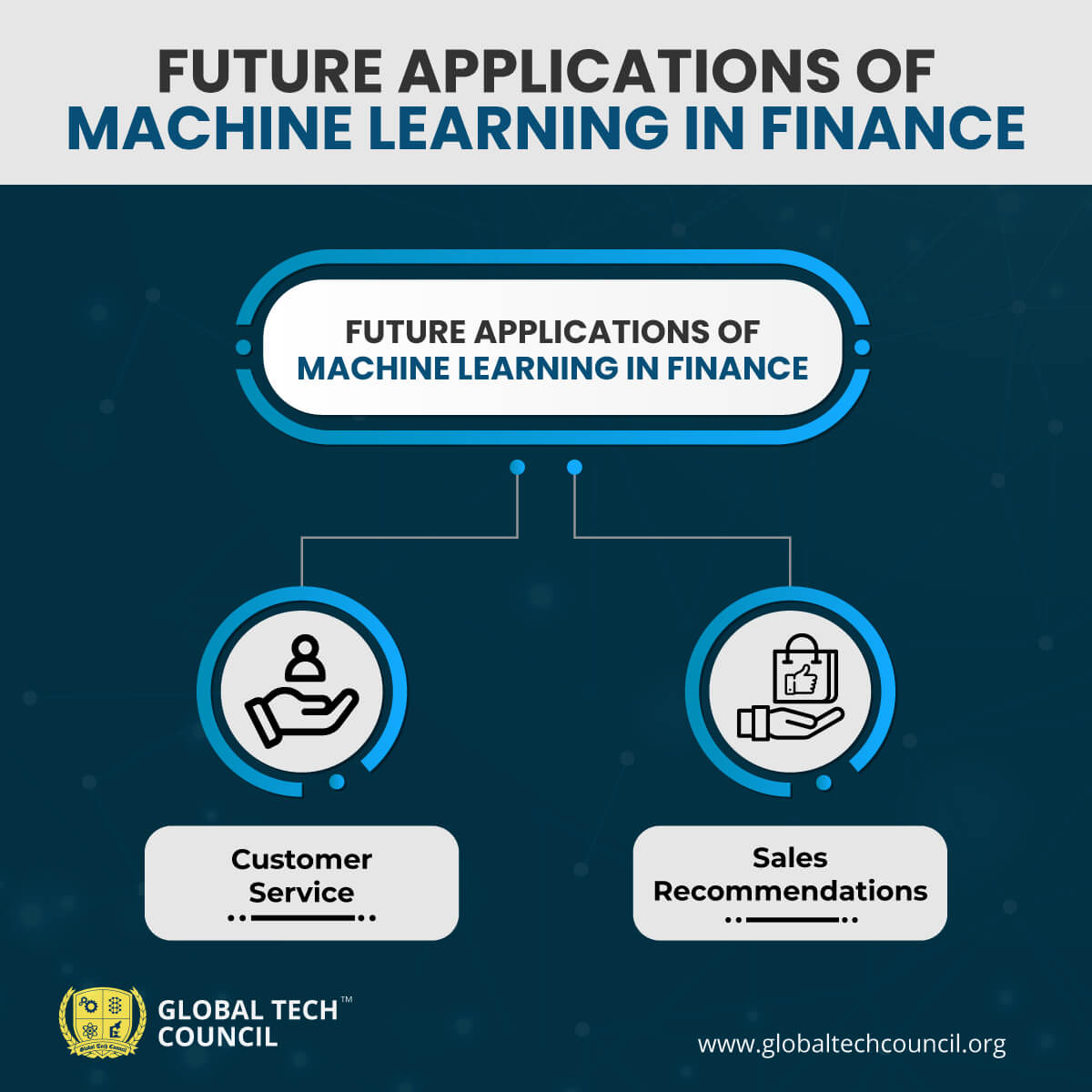A long time ago, Greek philosopher Pythagoras had suggested that everything around us can be represented in numbers, but no one believed him at that point in time. Fast forward to today, our computers break data into numbers that help us to analyze it and make better decisions. Machine Learning (ML) has begun to play a vital role in the changing scenario of how machines are getting smarter by the day. It’s also the reason why the machine learning course is in so much demand. However, in this blog post, we will discuss the relationship between machine learning and the finance industry.
Learning Of Blog
- Introduction
- Current ML Applications in Finance
- Future Applications of Machine Learning in Finance
- Limitations of Financial Institutions in Extracting The Best Of ML
- Conclusion
Introduction
Let’s start from the very basics as machine learning for beginners can be challenging; people with the best ML certification sometimes fail to understand complex ML solutions.
Machine learning is all about analyzing data and using it to improve a specific process, such as analyzing human behaviour to prevent crime before happening. In the finance industry, machine learning can be leveraged to learn from large amounts of data and develop techniques to handle data better.
The supernatural quality of machine learning is that the systems learn from datasets without being explicitly programmed. In simple words, all you need to do is select the datasets and feed it to the system. The system will automatically learn from the data and automatically improve its ability to produce accurate outcomes.
One of the reasons behind the popularity of machine learning in the finance industry is its ability to deal with extensive volumes of complex data; financial institutions have an abundance of it. Nowadays, major banks have integrated machine learning with their systems to improve loan approvals, risk calculation, calculation of credit scores, and the like.
Current ML Applications in Finance
Machine Learning is steadily revolutionizing the finance industry by bringing in automation and increasing productivity. Here are a few ML applications that are functional in the finance industry.
- Fraud Detection – Globally, banks incur a loss of billions of dollars every year due to frauds. While their traditional methods involved a checklist in preventing such scams, integration of ML in the same has completely revamped their approach towards detecting fraudulent activities. Modern ML methods include learning from previous datasets to identify potential threats.
This is the value of machine learning in identifying potential frauds. Systems detect anomalous activities or behaviours and flag them for the concerned team.
- Chatbots – Chatbots are extensively used in the banking industry to assist the customers in their basic banking queries. They are used to give the customers details of their financial holdings, timings of the bank, help create new deposits, and the like. One of the primary reasons behind the popularity of chatbots in the banking sector is their 24/7 availability.
- Algorithmic Trading – As the name suggests, algorithmic trading helps traders or financial institutions in making better trading decisions. In other words, it is a computer algorithm that keeps an eye on the latest trades, trends, news, and data in real-time. A prediction is made regarding the price of the stocks and based on the projections, the system takes decisions on buying, selling, or holding the stocks.
The ML algorithm also monitors data from multiple (hundreds or thousands) data sources simultaneously, which is impossible for humans, thus replacing manual work.
- Robo Advisory – Robo-advisors are very common in the finance industry nowadays. The term can be a bit misleading, but the fact is that it does not involve robots. Robo-advisors are companies that provide platforms to simplify the investment process.
Let’s take a look at a simple example. Suppose you wish to retire at the age of fifty with savings of $500,000. You’ll feed the system with the required details (your assets and income), and the system will suggest you ways to manage your investments to achieve the desired results.
Future Applications of Machine Learning in Finance
The future seems to be bright for ML and the finance industry. There are a lot of job opportunities for talented machine learning professionals. If you’re thinking of making a career in the same, now is the right time to go for a machine learning certification course to become a machine learning expert. These are the areas for further development scope.
- Customer Service – As mentioned above, chatbots are common in the banking industry, but they do not use other technologies such as Natural Language Processing. In the near future, it is expected that NLP will be widely integrated within chatbots (technically making them voice bots) so that customers can talk to them and resolve all their queries.
- Sales Recommendations – You must have seen e-commerce websites coming up with product recommendations you might be interested in. But, a similar thing does not happen in the finance industry. Soon, ML and AI will give personalized suggestions to customers for all their needs.
Limitations of Financial Institutions in Extracting The Best Of ML
Along with all the revolutionary advantages of machine learning, financial institutions have still not been able to tap the full potential of machine learning. We can hope that as ML evolves with time, it will be fully integrated with every financial process. But, the current scenario is slightly limited in approach due to multiple factors. Let’s have a look:
- Businesses feel that ML is some magic wand that will take care of everything and end up expecting something unreal from the technology. This is a theoretical expectation because machines are only as smart as we can train them to be.
- Machine learning solutions are costly. This is a popular misconception that has made a lot of financial institutions hesitant in signing up for the new technology.
- There is a shortage of talented ML developers. This is very much true because not enough people are championing in this new field. That’s why we suggest getting a Machine Learning Certification because the future is ML!
- Financial institutions often lack the robustness to implement new technologies and rely more on their traditional methods. They’re unwilling to make that leap of faith or technology.
Conclusion
Machine learning is undoubtedly a revolutionizing technology; companies dealing in the finance sector will inevitably use more of it soon. As more and more use cases are coming to the limelight, ML is evolving continuously and bridging the gap between the current financial system and a fully automated financial system.


Leave a Reply